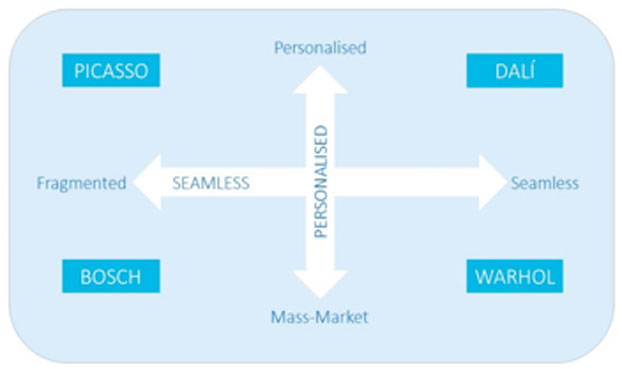The travel industry must be better prepared for economic and political disruption if it is to make the most of future economic growth, a new report highlights today.
International geo-political, social and economic developments are disrupting and polarising the world as we know it, limiting the industry’s potential for future prosperity unless companies act now.
This is despite the sharing economy, virtual reality and the Internet of Things all improving the traveller experience, according to the study by management consultancy A T Kearney commissioned by Amadeus.
Two key trends are identified as changing the travel industry landscape, and driving future success:
• Personalised travel experiences versus mass market.
Technology enables the aggregation of consumer data and the use of Artificial Intelligence to learn about traveller behaviour. In addition, it may help to meet individual needs, instead of a more traditional one-size-fits-all approach.
• Seamless travel versus fragmentation.
Truly seamless travel will require governmental co-operation and data sharing between businesses: from airports and airlines to destination services such as hotels, restaurants, and ground transportation.

Based on these two key trends, Amadeus and A T Kearney have identified four future-looking world scenarios that travel companies needs to prepare for today, if they are to maximise future growth and success tomorrow:
The Picasso scenario is built on a fragmented world marked by the rise of populism and by heightened security concerns. This has the effect of making more travel destinations off-limits. Even so, most parts of the world enjoy economic growth. Companies invest in innovation to reach more customers through mobile channels, and this interaction enables businesses to provide more sophisticated personalized offers.
The Dali scenario assumes that both social attitudes and economic prosperity create a more favourable environment towards sharing data. This brings about more relaxed privacy laws and lighter regulation, which allows for greater personalisation of travel. Living in the Dali scenario, travel becomes faster, cheaper, and safer. People benefit from less security controls at borders and have real-time information about unexpected events such as flight delays.
In the Bosch scenario, business costs rise across the industry as companies struggle to comply with a mosaic of different legal, tax, labour and data protection laws. We are confronting a fragmented world based on protectionism and distrust. Facing Bosch’s political environment, travellers seek comfort in trusted brands and book directly with well-known travel providers.
The Warhol scenario is characterised by seamless and not personalised travel that considers the implications of strong economic growth in Asia, giving rise to a large middle class with more disposable income for travel and leisure. Travellers would rather go for low-cost, mass-market travel instead of having personalised options even in a world free of barriers.
Amadeus IT Group corporate strategy vice president Alex Luzarraga said: “Technology has never held more promise for the travel industry but the status quo is being turned on its head.
“There is widespread mistrust and populism. Things we used to take for granted, such as the right to travel across Europe without passports, for example, may be less likely in the future.
“It is important to evaluate and understand, in partnership with A T Kearney, those issues that will continue to confront and disrupt the industry in the coming five to seven years, so we can as an industry be better prepared to deal with those issues, and also stimulate economic growth and success as a result.”
A T Kearney London principal Yelena Ageyeva-Furman added: “The report is based on the perspectives of a broad range of stakeholders from across the travel and technology worlds.
“It illustrates a broad view of the future, which allows companies to uncover their organisational blind spots.
“Moreover, the study tests existing plans against industry outlooks, and helps us understand ‘no regret’ moves and imperatives in company strategy.
“This paper will provide an interesting perspective to the businesses that wish to prosper in the travel industry in the coming years.”
